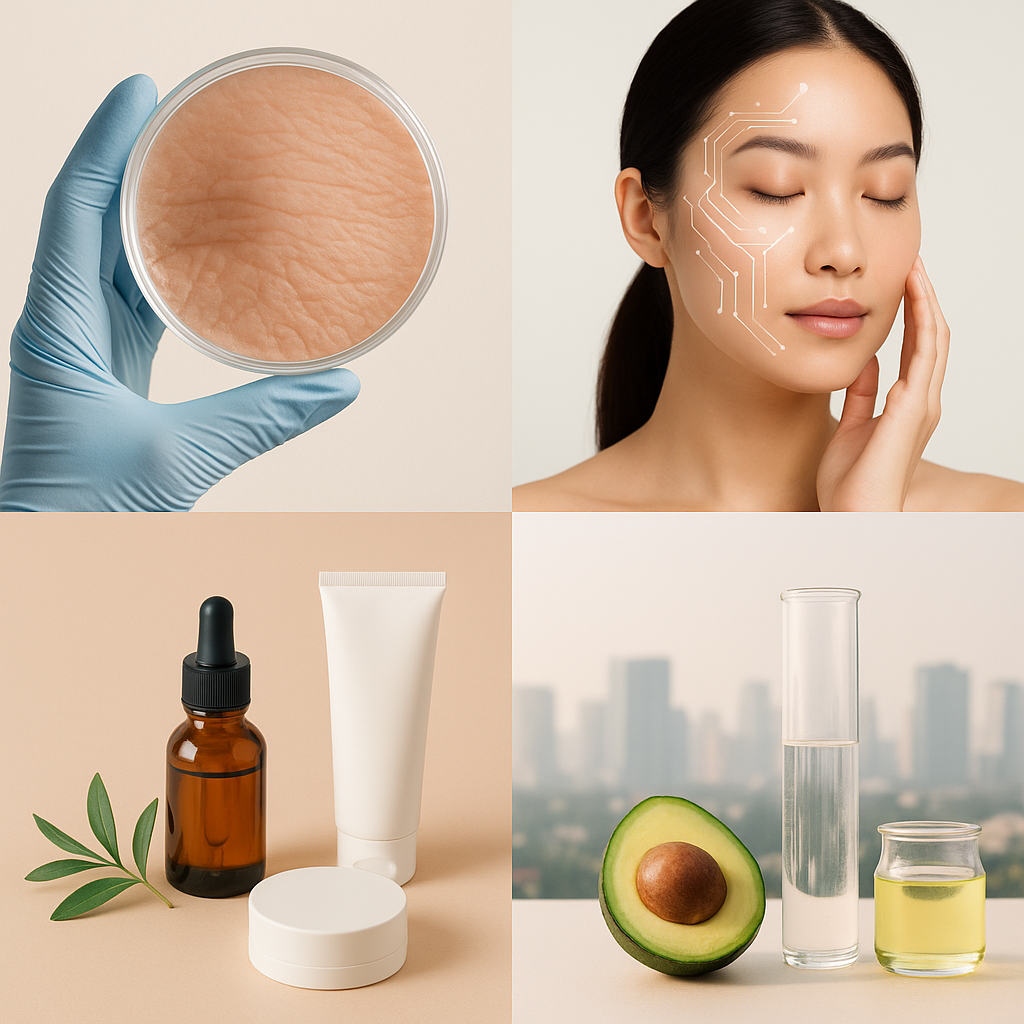Science, sustainability, and personalization are becoming the new standards in skincare consumption.
As we enter 2025, the global skincare industry is evolving beyond conventional beauty products.
From biotechnology-powered skin regeneration to AI-based personalized products and climate-responsive clean beauty, skincare is undergoing one of its most transformative periods yet.

Biotech Skincare: A New Era of Skin Regeneration
Traditional skincare has focused on protection, but the new frontier is regeneration.
Technologies such as stem cell extracts, epidermal growth factors (EGF), and microbiome-balancing ingredients are gaining popularity.
Global brands like Lancôme, SkinCeuticals, and Korean brands like Missha and The Lab by Blanc Doux are incorporating biotech into their products.
For example, Lancôme’s Advanced Génifique targets the skin barrier with seven types of probiotics, while Missha’s Bipolar Ampoule emphasizes high-concentration stem cell ingredients for skin recovery.
AI-Powered Personalized Skincare Routines
Artificial Intelligence is playing a growing role in skincare diagnostics and product matching.
In Korea, brands like Amorepacific offer services such as “Beauty Tailor” and “CUBEME,” which analyze skin moisture, oil balance, elasticity, and pigmentation to generate custom skincare solutions.
Global companies such as L’Oréal and Shiseido are also investing heavily in AI-powered platforms.
However, these innovations raise questions about data privacy and transparency, especially when sensitive biometric data is involved.
Clean Beauty Skincare: Where Ethics Meet Efficacy
In 2025, skincare customers are prioritizing verified sustainability over vague claims of “natural.”
Vegan certification, cruelty-free standards, biodegradable packaging, and carbon-neutral production processes are now seen as essential.
Korean clean beauty leaders like Aromatica, Huxley, and Innisfree (Green Tea Line) stand out in this arena.
Still, since clean beauty standards vary across regions and can be used as marketing buzzwords, consumers should remain cautious and well-informed.
Urban Skincare: Tackling Environmental Stressors
Modern environmental stressors—such as fine dust, indoor dryness, blue light, and UV rays—are driving demand for targeted skincare solutions.
Popular products now combine SPF with blue light filters, anti-pollution cleansers, and soothing mists for post-mask irritation.
Example products: Dr. Jart’s Cicapair Tiger Grass Calming Mist and La Roche-Posay’s UVidea Tone-Up Light Cream
Multi-Solution Skincare: Efficient Routines for Busy Lives
Hybrid skincare products combining ampoule and cream, toner and mask, or serum and essence are trending.
These multi-functional formulas appeal to minimalists and working professionals looking to streamline their skincare routine.
Rather than reducing effectiveness, these products consolidate steps while maintaining scientific integrity and stable active ingredients.
Conclusion: The Rise of Skin-Centered Skincare
Skincare in 2025 is about merging science, personalization, and ethical responsibility.
The shift points toward a future where skincare resembles personalized medical cosmetics based on data and biology.
Consumers are now choosing products based not just on branding, but on verified ingredients, responsible production, and relevance to their own skin.
At the heart of it all lies a deeper understanding of one’s unique skin needs.
